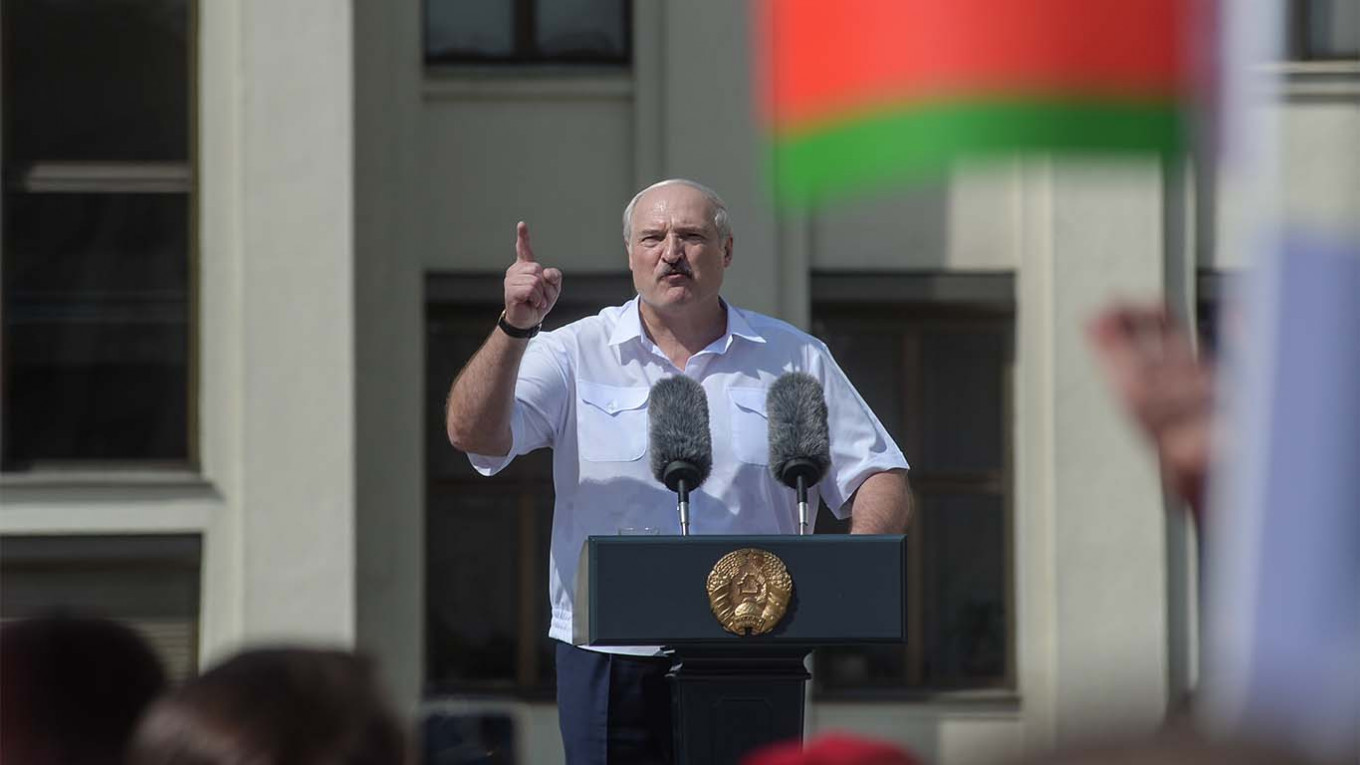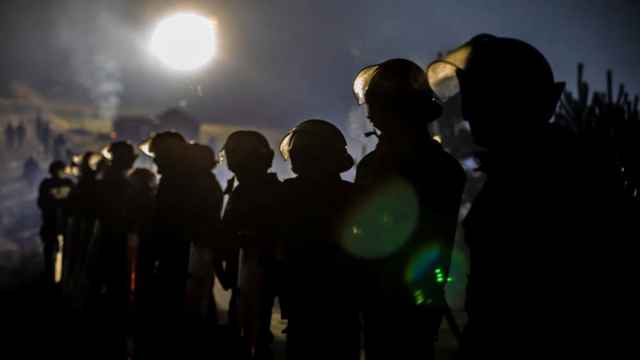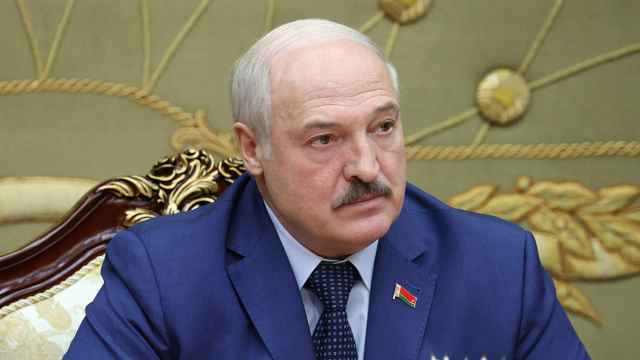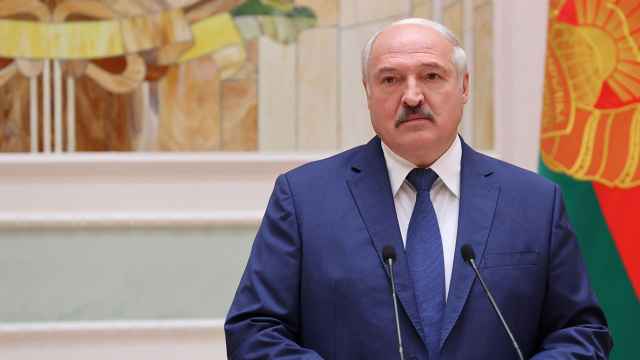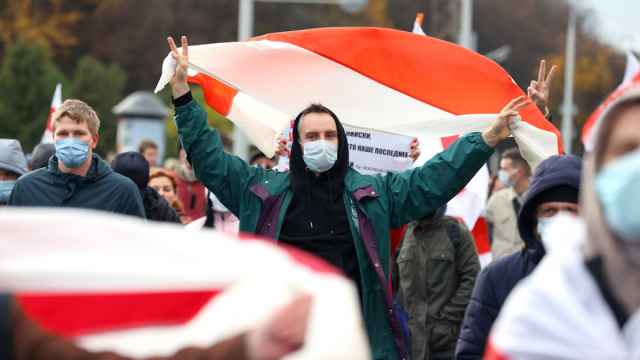The European Union on Wednesday rejected the result of Belarus's disputed presidential election as strongman leader Alexander Lukashenko ordered his security forces to prevent any further unrest.
Following an emergency video conference on the elections, European Council chief Charles Michel said the EU would soon levy sanctions against a "substantial number" of people responsible for vote rigging and the violent suppression of protests in the ex-Soviet country.
Protesters have flooded the streets of Belarusian cities in the wake of the Aug. 9 election, waving the red-and-white flags of the opposition and calling on Lukashenko to step down after he claimed a sixth term with some 80% of the ballot.
German Chancellor Angela Merkel told reporters that the EU rejects the results of the vote, which was "neither free nor fair."
Svetlana Tikhanovskaya, a 37-year-old political novice who fled to neighbouring Lithuania after claiming victory in the vote, earlier on Wednesday urged EU leaders not to recognise the "fraudulent" ballot.
"Lukashenko has lost all legitimacy in the eyes of our nation and the world," she said in the video appeal.
Western leaders including French President Emmanuel Macron and Merkel this week called on Lukashenko's close ally Russia to foster talks between authorities and the opposition.
'No more riots': Lukashenko
The Kremlin on Wednesday described foreign interference in Belarus as "unacceptable" and Foreign Minister Sergei Lavrov condemned what he said were attempts from abroad to take advantage of unrest in Belarus.
"No one is making a secret of the fact that this is about geopolitics, the fight for the post-Soviet space," he said in a televised interview.
Yet Minsk's ties with Moscow have cooled in recent years after Lukashenko resisted Russian President Vladimir Putin's efforts to integrate the two countries. Ahead of the vote, he accused the Kremlin of dispatching mercenaries to Minsk to stir unrest with the opposition.
Europe's longest-serving leader, Lukashenko has resisted calls to resign or hold new elections and has accused the opposition of attempts to "seize power."
During a meeting of his security council on Wednesday, Lukashenko ordered his government to prevent further unrest and shore up protections along the ex-Soviet country's border.
"There should be no more riots in Minsk. People are tired; people demand peace and quiet," Lukashenko told officials.
He said the protective measures on the border were necessary to stop "militants, weapons, ammunition and money from other countries from entering Belarus to finance the riots."
Tikhanovskaya, a trained English teacher who said she never planned to enter politics, contested the vote after her husband was jailed and barred from running against Lukashenko.
'Peaceful transition of power'
She has vowed to hold new elections and a Coordination Council which her allies created to oversee the transfer of power convened on Wednesday.
In her video to European leaders, Tikhanovskaya said the council would lead the process of a "peaceful transition of power via dialogue" and call for "new fair and democratic presidential elections with international supervision."
Nobel Prize-winning author and outspoken Lukashenko critic Svetlana Alexievich has been named a member of the group.
Lukashenko's claim to victory sparked the largest demonstrations in Belarus since it gained independence with the 1991 collapse of the Soviet Union.
More than 100,000 demonstrators flooded the streets of the capital Minsk last weekend as frustration reached a fever pitch.
A police crackdown on peaceful protesters in the days after the vote saw nearly 7,000 demonstrators detained and sparked allegations of abuse and torture at the hands of security services.
The health ministry on Wednesday confirmed the death of a 43-year-old man after his family said he was shot while taking part in a protest last week. Two other people are confirmed to have died in post-election unrest.
Pressure not to strike
Lukashenko has handed out awards to some 300 members of his security services for "impeccable service" after rights groups and Western leaders denounced police violence.
Traditionally loyal factory workers at state-run enterprises answered the opposition's calls to strike in an unprecedented display of anger towards the Belarusian leader.
But the authorities appear to be clamping down on employees at state factories walking off the job, with police intervening in a demonstration outside the Minsk Tractor Works on Wednesday morning and arresting protesters.
Activists on social media have said the authorities are exerting enormous pressure on employees at state-run enterprises to refuse to strike, leading to a sharp drop in the numbers of protesters joining the walkouts.
Police on Wednesday also blocked the entrance to the National Academy Theatre in Minsk after staff resigned en masse to protest the forced removal of director and former culture minister Pavel Latushko, who publicly called for new elections.
A Message from The Moscow Times:
Dear readers,
We are facing unprecedented challenges. Russia's Prosecutor General's Office has designated The Moscow Times as an "undesirable" organization, criminalizing our work and putting our staff at risk of prosecution. This follows our earlier unjust labeling as a "foreign agent."
These actions are direct attempts to silence independent journalism in Russia. The authorities claim our work "discredits the decisions of the Russian leadership." We see things differently: we strive to provide accurate, unbiased reporting on Russia.
We, the journalists of The Moscow Times, refuse to be silenced. But to continue our work, we need your help.
Your support, no matter how small, makes a world of difference. If you can, please support us monthly starting from just $2. It's quick to set up, and every contribution makes a significant impact.
By supporting The Moscow Times, you're defending open, independent journalism in the face of repression. Thank you for standing with us.
Remind me later.


